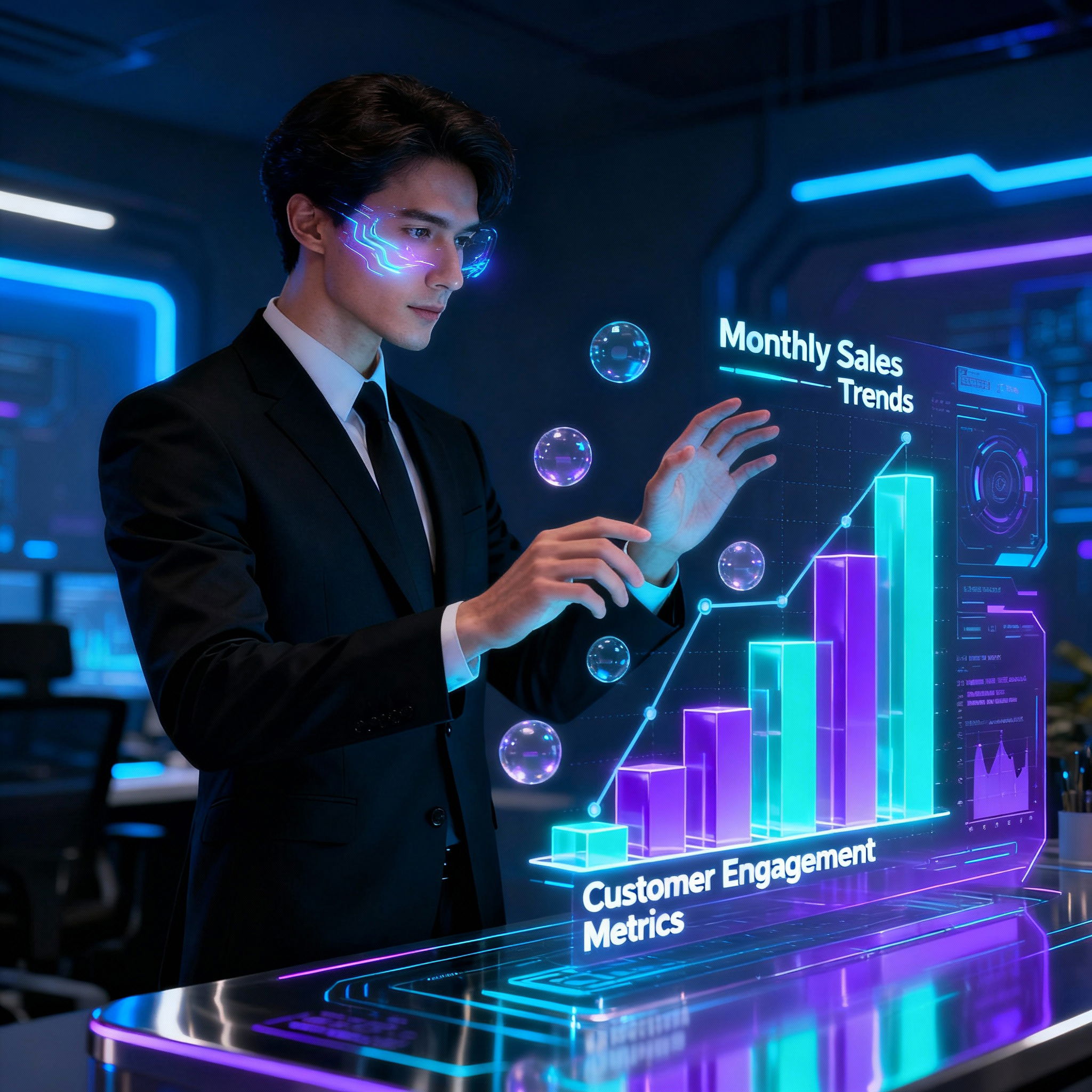AI in Marketing: The Competitive Edge Every Brand Needs in 2025
From predictive analytics to automation, AI is redefining how marketers engage audiences, optimize spend, and unlock long-term growth.
The marketing world is evolving faster than ever before. Customers expect seamless, personalized experiences, while businesses demand measurable ROI from every dollar spent. Marketers often find themselves under constant pressure to deliver more campaigns, across more channels, with greater accuracy—yet with fewer resources. This is where Artificial Intelligence (AI) is stepping in as both a game-changer and a growth enabler.AI is not just another emerging technology; it has become a core driver of marketing success. From predictive analytics to advanced personalization, AI solutions are helping marketers save time, reduce errors, and deliver experiences that feel genuinely human. The result is a new era of marketing where precision and efficiency co-exist with creativity and strategy.

Turning Data Into Actionable Insights
Marketers today are sitting on mountains of customer data—browsing behavior, purchase history, social interactions, location, and more. The challenge is extracting meaning from this sea of information. AI excels at this task by quickly analyzing billions of data points to reveal patterns that humans might miss. Instead of manually reviewing reports, AI can identify which audience segments are most likely to convert, when customers are ready to engage, and which channels are performing best. This level of accuracy ensures marketing teams base decisions on fact, not intuition, leading to smarter strategies and more reliable results.
Personalization at Scale: The New Standard
What once was optional is now expected: personalization. AI makes true one-to-one marketing possible—even for organizations managing massive customer bases. Email campaigns can now adapt subject lines and content for each recipient, while e-commerce platforms can recommend products that fit individual shopping habits in real time .Instead of generic messaging, customers experience unique and highly relevant brand interactions. This not only improves engagement rates, but also builds long-term loyalty by making customers feel understood. Without AI, this level of personalization at scale would require enormous manual effort and resources.
Saving Time Through Automation
Consider the number of repetitive tasks in a modern marketer’s day: scheduling posts, updating reports, segmenting audiences, and optimizing ad spend. AI eliminates much of this manual workload by automating processes that previously took hours, or even days, to complete. Campaigns can run 24/7 and dynamically adjust themselves based on performance—ensuring budgets are used efficiently and results climb higher. For marketers, this means less time spent in spreadsheets and dashboards, and more time driving strategy, creativity, and innovation.
Predicting Outcomes, Not Just Measuring Them
Traditional marketing relies heavily on analyzing campaign results after launch. AI changes that by predicting outcomes with remarkable accuracy before campaigns go live. Predictive analytics allows marketing teams to forecast conversion potential, customer churn risk, and likely ROI. Even while a campaign is running, AI monitors performance in real time, providing adjustment recommendations to optimize results instantly. This eliminates wasted spend and reduces the trial-and-error approach that often makes marketing costly and inefficient.
Supporting Creativity and Messaging
Contrary to the myth that AI stifles creativity, many marketers are discovering the opposite: AI enhances it. Content-generation tools powered by AI can suggest themes, create messaging variants, and recommend visuals aligned with brand tone and campaign goals. This doesn’t replace human creativity—it strengthens it. Marketers get to focus on crafting creative strategy and storytelling, while letting AI handle the groundwork of ideation, proofreading, or trend analysis. The result is faster, more accurate content creation that resonates deeply with audiences.
Building Deeper Customer Relationships
The end goal of marketing is not just to drive clicks, but to build lasting relationships. AI is helping brands understand customer journeys in ways that were once impossible. By tracking and interpreting real-time behavior across multiple touchpoints, AI provides insights into what motivates customers and how brands can better serve them. When executed well, AI-driven marketing doesn’t feel robotic—it feels more human. Customers appreciate that their favorite brand remembers their preferences, communicates consistently, and delivers what they need, when they need it. This builds trust, loyalty, and long-term engagement.
Why Embracing AI is a Competitive Advantage
Marketing has always balanced the art of storytelling with the science of performance. AI empowers both sides. The marketers who embrace AI are positioned to move faster, aim more accurately, and deliver campaigns that connect at scale. Those who don’t risk falling behind in a competitive landscape where speed and precision decide winners. By automating the repetitive, ensuring accuracy in data, and enabling advanced personalization, AI allows marketers to focus where they matter most: strategy, creativity, and meaningful engagement. In short, AI isn’t replacing marketers—it’s giving them superpowers.


